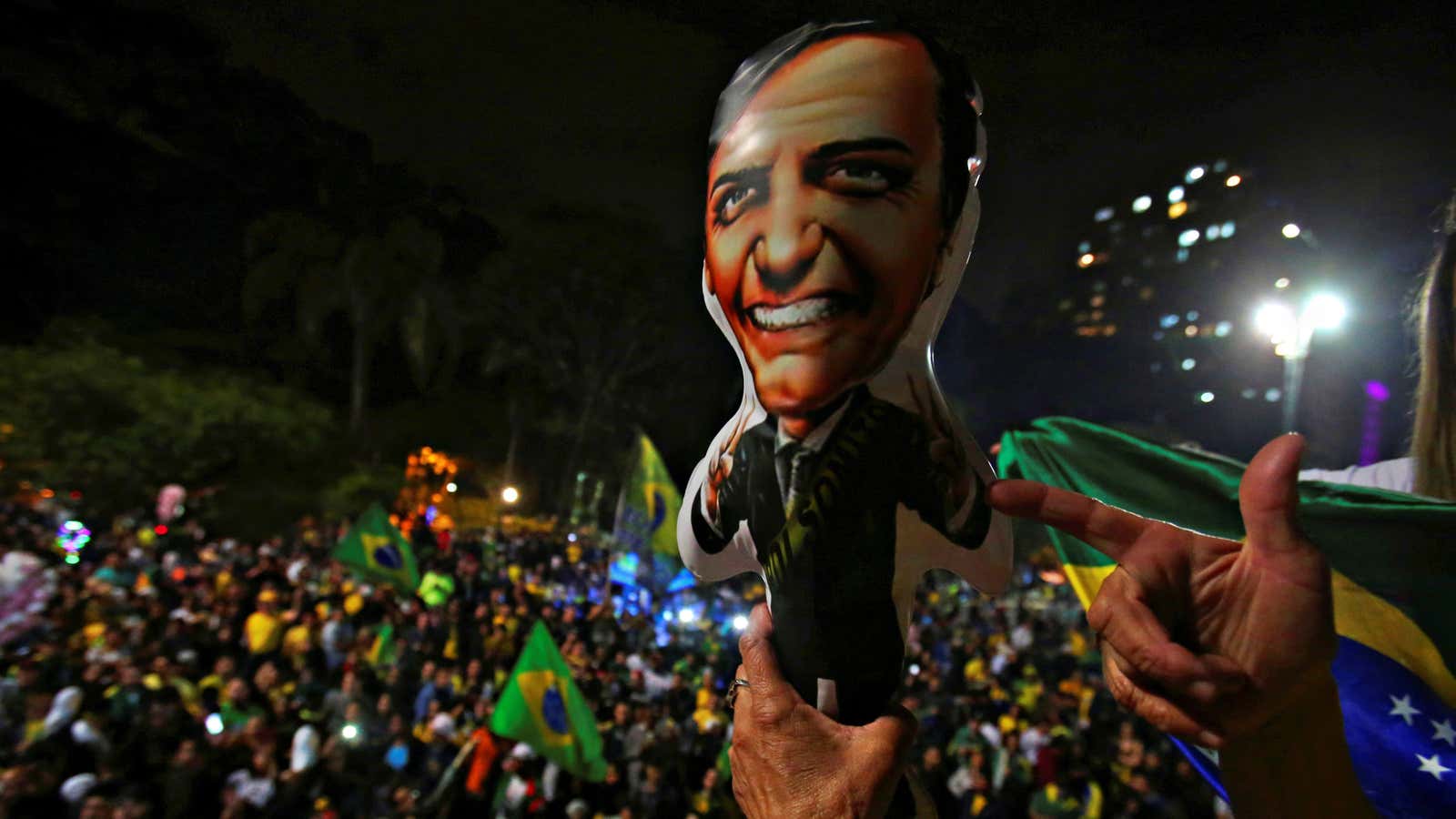On Oct. 28, Brazilians elected Jair Bolsonaro as president in the second-round runoff of a hotly contested vote. Some analysts characterized the campaign as a battle for the future of democracy in Latin America’s largest economy.
Bolsonaro, a combative, far-right populist who praised Brazil’s decades-long military dictatorship, advocated for state-sponsored torture, joked about rape, and proudly showed off his homophobia and sexism, won the election with more than 55% of the vote. Global markets are cheering his victory, with Brazil-tracking funds and trusts in Asia and Europe rising sharply on the news:
Bolsonaro benefitted from his hardline stance on Brazil’s insecurity and violence problem, as well as his outsider status, which set him apart from the various corruption scandals that have dogged the left-wing Worker’s Party of his opponent, Fernando Haddad. But, perhaps most of all, Bolsonaro is seen as the man to right Brazil’s economic woes. That’s partly because his economic advisor, Paulo Guedes, a free-market economist from the University of Chicago, crafted a liberal economic message for his boss, including proposals to slim down Brazil’s sprawling state bureaucracy and push through through privatizations and public-spending cuts.
A significant part of Bolsonaro’s economic message has been his support of private pension accounts for new workers, something that would shift retirement costs from the government to employees and the private sector, thereby lightening the public debt burden. But, as with many of Bolsonaro’s policy proposals, this will depend on congressional consensus, something that a divisive candidate like him cannot depend on. Analysts from ING wrote that, while they are confident that Bolsonaro “will prioritize the confidence-boosting fiscal reforms that Brazil urgently needs,” they “also have doubts about his ability to get them approved in Congress.”
That’s why some market watchers believe that the boom in Brazilian markets may be built on shaky foundations: Bolsonaro has offered few clarifications on his economic plan, often making public comments at odds with the policy goals laid out by Guedes, including mixed views toward privatization and tax reform. ”It seems likely that this initial optimism could extend to euphoria for a while,” analysts at Schroders wrote in a research note. “Assuming no unforced errors on the part of Bolsonaro, the first reality check for investors is likely to come in the second quarter of 2019, when a post-Carnival legislature comes to the practicalities of passing tough bills.”
In the meantime, investors appear to be giving Bolsonaro the benefit of the doubt. Even before today’s bump, Brazil’s stock market has risen sharply, in contrast to the malaise in the global stocks.
